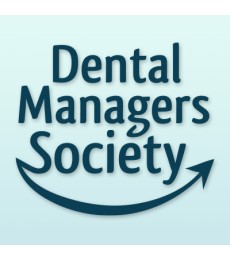Goodwill makes up a great percentage of the value of a dental practice and signifies at what stage of development a dentist is in his or her career. The factors making up goodwill start with a loyal patient base built up over years of practicing quality dentistry. The value of goodwill to a practice also includes the existence of dedicated highly-skilled employees, a good reputation in the community, a good practice location, and well-managed expenses. Basically, they constitute the value of how well the practice can produce income presently, and into the future.
Goodwill is intangible in nature, meaning that it can only be valued subjectively taking into consideration some of the above factors which cannot easily be ascribed a particular worth. It is distinguished from the tangible assets of the practice such as the value of furnishings and equipment or the real estate that the practice is located on. There are a number of ways it can be valued, however, most of these have to do with the amount of revenue versus expenses the practice generates on a year-to-year basis.
Associates who are not owners can also be building goodwill in a practice because of the loyalty of patients who are used to seeing one particular dentist within a practice. However an associate almost always is restricted from owning that goodwill and carrying it with him or her as they move into a different practice with non-competition agreements, which are sometimes referred to as restrictive covenants. The 2019 Mass. Non-Competition law limits these provisions relating to employee associates or independent contractors to one year in length. Owners who haven’t updated their associate agreements for a while often have agreements in violation of this law if these contracts have been signed since 2019.
There is an important distinction, however, in this non-competition law between non-competition agreements and non-solicitation agreements, which do not have a duration limit and prohibit soliciting the patient base. A departing employee dentist cannot be prohibited from setting up a dental practice nearby after one year from separation from a practice, but a non-solicitation provision can prevent the former employee from raiding a patient base from a former employer for a number of years. This preserves goodwill, and still allows the former dentist to build his or her own goodwill base in a new practice with new patients.
Another distinction in the 2019 Massachusetts non-competition law is that there are no statutory restrictions on non-competition provisions applicable to dental practice sales. Selling dentists can promise contractually to sell their goodwill to a practice buyer for a certain period of time and within a certain geographical area and not practice dentistry within that area. Even without statutory limits, however, non-competition agreements in sales contracts are not always enforceable in the courts, particularly when they are very restrictive to a dentist starting up at a different location further away from a former practice or at a time which would indicate that they have separated sufficiently from patients not to impact goodwill.
Non- solicitation agreements preventing hiring of former employees other than dentists can also protect the goodwill built up when a dentist trains and employs experienced employees who also contribute to the success of the practice. Training employees has a value, and sometimes agreements take that into consideration and state a dollar amount in the non-solicitation agreement to be paid by a departing dentist who wants to hire a former employee.
Non- disclosure agreements prevent employees or associate dentists from revealing patient lists or other information affecting the value of goodwill, including trade secrets or other unique business aspects which have value to creating income for the practice. Patient lists themselves have such a great value by themselves that they are often included as a separate section of a purchase and sale agreement.
Overall, the reason why goodwill is so valuable and protected by a variety of agreements is that it marks the ability of a dentist to create an increasing income over the course of a career. Ownership of a practice for an extended period often results in a high reward on this basis when a practice is sold.
Contact Information

Brian Hatch
Hatch Legal Group
8 North Main Street, Suite 403
Attleboro, MA 02703
HatchLegalGroup.com
brianhatch@hatchlawoffices.com
508-222-6400


